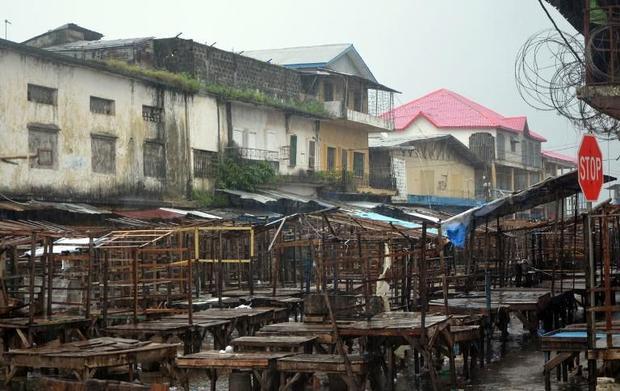
An empty street market in Monrovia's West Point district, 20 August 2014.
* Labour shortages expected to hit main harvest season
* Cassava prices in Monrovia rose by 150 pct in August
* FAO needs $20 million for response plan
fao.org - af.reuters.com -
ROME/DAKAR, Sept 2 (Reuters) - The world's worst Ebola epidemic has endangered harvests and sent food prices soaring in West Africa, the U.N. Food and Agriculture Organisation (FAO) said on Tuesday, warning the problem would intensify in coming months.
by Isla Binnie and Emma Farge - September 2, 2014
The FAO issued a special alert for Liberia, Sierra Leone and Guinea, the three countries most affected by the outbreak, which has killed at least 1,550 people since the virus was detected in the remote jungles of southeastern Guinea in March.
Restrictions on people's movements and the establishment of quarantine zones to contain the spread of the hemorrhagic fever have led to panic buying, food shortages and price hikes in countries ill-prepared to absorb the shock.
(READ COMPLETE ARTICLE)
Recent Comments